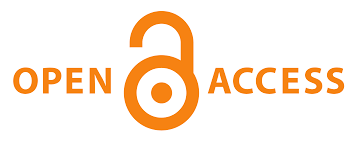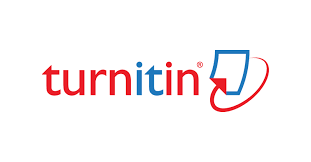The Use of Poster Media to Enhance Student Learning Outcomes in Descriptive Text Writing
Main Article Content
Raudhatul Jannah
Zahara Fona
Fakhriah Fakhriah
Niswatul Khaira
This research reported observations regarding students' learning activities. The results of the study revealed that most students did not enjoy the learning process and yet become passive learners. This can be driven by several aspects, particularly the employment of conventional methods by teachers during the class, and the media exploited was not engaging. Thus, this study proposed a resolution to construct learning activities more engaged. This study suggested that the application of poster media can be an alternative to enhance students' learning outcomes in Writing Descriptive Text topic, particularly at the junior high school (SMPN 1). The data sources in this study were seventh-grade students of SMPN 1 Darul Aman (The academic year 2021/2022). Data compiled from students comprise data on the results of written tests carried out at the end of each cycle, non-tests, including observation sheets, and interviews. The data were analyzed using qualitative descriptive analysis.
Ahmad, S. Z. (2019). Digital Posters to Engage EFL Students and Develop Their Reading Comprehension. Journal of Education and Learning, 8(4), 169-184.
Cho, H., Kim, Y., & Park, S. (2021). Comparing students’ responses to synchronous written corrective feedback during individual and collaborative writing tasks. Language Awareness, 1-20.
Coskun, I., & Eker, C. (2018). The Effect of Teaching Activities Done by Using Activity Based Posters on the Students' Academic Achievements, Retention Levels in Their Learning. Universal Journal of Educational Research, 6(4), 585-597.
Irwansyah, D., & Azis, Y. A. (2018). Incorporating intercultural competences in developing English materials for writing classes. Journal of Language Teaching and Research, 9(3), 540-547.
Nasir, K. (2019). Grammatical Difficulties Faced By Second Language (L2) Learners In Writing Sentences. ITQAN: Jurnal Ilmu-Ilmu Kependidikan, 10(1), 71-80.
Prabavathi, R., & Nagasubramani, P. C. (2018). Effective oral and written communication. Journal of Applied and Advanced Research, 3(1), 29-32.
Rahman, F., & Saputra, N. (2021). English as International Language Revisited: Implications on South Korea’s ELT Context. Scope: Journal of English Language Teaching, 6(1), 08-15.
Rahmawati, R., Lestari, F., & Umam, R. (2019). Analysis of the effectiveness of learning in the use of learning modules against student learning outcomes. Desimal: Jurnal Matematika, 2(3), 233-240.
Rosanti, S. Y., & Seman, N. A. A. (2019). The effectiveness of posters as a learning media to improve student learning quality. The Journal of Social Sciences Research, 97-103.
Ryan, M. L. (2015). Narrative as virtual reality 2. Baltimore: Johns Hopkins University Press.
Sa'adah, I. S., & Atikah, A. (2019). Improving Students’vocabulary Using Poster Media For Second Grade Hearing Disable At Smalb. Project (Professional Journal of English Education), 2(1), 26-33.
Saregar, A., Ariyani, F., Pawe, T. I., Pricilia, A., & Astriawan, D. (2019, February). How to Design Physics Posters Learning Media with Islamic Values in Developing Learning Motivation and Student Character?. In Journal of Physics: Conference Series (Vol. 1155, No. 1, p. 012093). IOP Publishing.
Sari, P. K., Rostini, D., Ahmad, A., Fajarianto, O., & Yulistiani, N. (2019). The Effect of Poster Media on Students Learning Motivation in Social Science for Primary Students. In Proceedings Of the International Conference on Education, Language and Society (pp. 371-75).
Sudargini, Y., & Purwanto, A. (2020). the Effect of Teachers Pedagogic Competency on the Learning Outcomes of Students. Journal of Industrial Engineering & Management Research, 1(4), 1-8.
Sulistyo, T., Eltris, K. P. N., Mafulah, S., Budianto, S., Saiful, S., & Heriyawati, D. F. (2020). Portfolio assessment: Learning outcomes and students’ attitudes. Studies in English Language and Education, 7(1), 141-153.
Suminar, R. P., & Putri, G. (2018). The effectiveness of TTW (Think-Talk-Write) strategy in teaching writing descriptive text. Academic Journal Perspective: Education, Language, and Literature, 2(2), 300-305.
Tran, T. T. H. (2009). Why is action research suitable for education?. VNU Journal of Foreign Studies, 25(2).
Trisiana, A. (2021). Reactualization Of Citizenship Education Versus Digitalization Of Learning Media: Expectations And Challenges In The Pandemic Era. Journal of Legal, Ethical and Regulatory Issues, 24(5), 1-10.
Vaismoradi, M., Turunen, H., & Bondas, T. (2013). Content analysis and thematic analysis: Implications for conducting a qualitative descriptive study. Nursing & health sciences, 15(3), 398-405.
Wahyuningsih, S., & Fitriani, F. N. (2021). Incorporating English Vocabulary Through the Use of Poster Media for Elementary School Students. Edulingua: Jurnal Linguistiks Terapan dan Pendidikan Bahasa Inggris, 8(2), 13-22.
Yuzar, E. (2020). Incorporating Communicative Competence in Assessment and English Language Teaching in Multilingual Settings. REiLA: Journal of Research and Innovation in Language, 2(1), 8-13.
Fakhriah Fakhriah , SMK Negeri 3 Lhokseumawe
This research reported observations regarding students' learning activities. The results of the study revealed that most students did not enjoy the learning process and yet become passive learners. This can be driven by several aspects, particularly the employment of conventional methods by teachers during the class, and the media exploited was not engaging. Thus, this study proposed a resolution to construct learning activities more engaged. This study suggested that the application of poster media can be an alternative to enhance students' learning outcomes in Writing Descriptive Text topic, particularly at the junior high school (SMPN 1). The data sources in this study were seventh-grade students of SMPN 1 Darul Aman (The academic year 2021/2022). Data compiled from students comprise data on the results of written tests carried out at the end of each cycle, non-tests, including observation sheets, and interviews. The data were analyzed using qualitative descriptive analysis.




